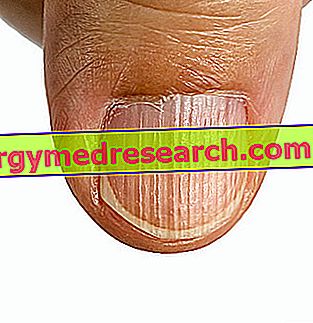
What is HyQvia and what is it used for? Human normal immunoglobulin?
HyQvia is a medicine that contains the active substance human normal immunoglobulin for subcutaneous use. It is indicated in adults with immunodeficiency syndromes, whose blood does not contain a sufficient amount of antibodies (proteins that help the body fight infections and other diseases), also known as immunoglobulins. HyQvia is used as a "replacement therapy" in the treatment of the following conditions:
- primary immunodeficiency diseases (PID, observed in people with an inability to produce enough antibodies from birth);
- low levels of antibodies in the blood in patients with chronic lymphocytic leukemia or myeloma (two types of tumors involving different types of white blood cells) and who contract frequent infections.
The product also contains recombinant human hyaluronidase, an enzyme used to facilitate the administration of normal human subcutaneous immunoglobulin and its absorption by the body.
How is HyQvia used - Human normal immunoglobulin?
HyQvia can only be obtained with a prescription and treatment must be started and monitored under the supervision of a doctor or nurse experienced in the treatment of immunodeficiency.
HyQvia is available as two subcutaneous infusion solutions (drip). The two components are administered sequentially through the same needle, starting with the solution containing the recombinant human hyaluronidase followed by the solution containing human immunoglobulin (100 mg / ml). For detailed information on the use of HyQvia, see the package leaflet.
Patients or caregivers can administer HyQvia after receiving adequate training. The dose and frequency of infusions depend on the individual patient and can be changed based on the response.
How does HyQvia work - Human normal immunoglobulin?
The active substance in HyQvia, human normal immunoglobulin, is a highly purified protein extracted from the blood. It contains immunoglobulin G (IgG), which is a type of antibody. IgG has been used as a medicine since the 1980s and carries out a wide-ranging activity against organisms that cause infections. HyQvia helps restore abnormally low IgG levels in the patient's blood, returning them to normal levels.
HyQvia also contains recombinant human hyaluronidase, a form of the natural human hyaluronidase enzyme that promotes the cleavage of a substance, called hyaluronic acid, present in the tissues in the tiny spaces between the cells, temporarily reducing the viscosity within these spaces. If administered subcutaneously before normal human immunoglobulin, it facilitates the spread of the active ingredient under the skin and allows for greater absorption by the body.
Recombinant human hyaluronidase is produced by a method known as "recombinant DNA technology": that is, it is obtained by cultivating cells in which a gene (DNA) has been introduced that allows them to produce the enzyme.
What benefits of HyQvia - Human normal immunoglobulin have been shown in studies?
Human normal immunoglobulin has been used in the treatment of these diseases for many years.
HyQvia was examined, in accordance with current guidelines on these medicines, in a main study that lasted more than a year, attended by 89 patients with PID who had already been treated with normal human immunoglobulin for at least three months. The main measure of effectiveness was the number of serious bacterial infections contracted by patients within a year of treatment. The study showed that HyQvia was able to reduce these infections to 0.03 per year; this is below the predefined limit of an infection per year required to demonstrate efficacy and is similar to that observed with other authorized human immunoglobulin-containing medicines.
What are the risks associated with HyQvia - Human normal immunoglobulin?
The most common side effects of HyQvia (which may affect more than 1 in 10 people) are local reactions such as swelling and infusion disorders.
For the full list of all side effects reported with HyQvia, see the package leaflet.
HyQvia should not be used in people who are hypersensitive (allergic) to normal human immunoglobulin or hyaluronidase or to any of the other ingredients, or in patients who are allergic to other types of immunoglobulins, especially if they have a deficiency (very low levels) of immunoglobulin A ( IgA) and antibodies against IgA. HyQvia should not be administered into a blood vessel.
Why has HyQvia - Human Normal Immunoglobulin been approved?
The Agency's Committee for Medicinal Products for Human Use (CHMP) noted that HyQvia induces a reduction in the number of serious bacterial infections similar to that observed with other immunoglobulin-containing medicines and that the use of recombinant hyaluronidase allows the administration of subcutaneous infusions at much greater intervals, albeit with a slight increase in the frequency of local reactions. The possibility for patients or carers to administer the medicine at home can also increase the convenience of the product. Despite the concern that the antibodies that develop against recombinant hyaluronidase may cause side effects due to damage to the natural version of the enzyme, the results of the studies were reassuring and restrictions on use, including the fact that HyQvia should not used in children or pregnant or fertile women should help reduce the risk further. The Committee therefore decided that HyQvia's benefits are greater than its risks and recommended that it be approved for use in the EU.
What measures are being taken to ensure the safe and effective use of HyQvia - Human normal immunoglobulin?
A risk management plan has been developed to ensure that HyQvia is used as safely as possible. Based on this plan, safety information has been included in the summary of product characteristics and the package leaflet for HyQvia, including the appropriate precautions to be followed by healthcare professionals and patients. In addition, the company that markets HyQvia will provide information materials to all healthcare professionals who may use or prescribe the medicine, including some fact sheets to be distributed to patients.
To gather more information on the safety of HyQvia in pregnant women, the company intends to create a record to monitor the outcome of any pregnancies that may inadvertently occur in women being treated with HyQvia.
Other information on HyQvia - Human normal immunoglobulin
On 16 May 2013, the European Commission issued a marketing authorization for HyQvia, valid throughout the European Union.
For the full EPAR for HyQvia, consult the Agency's website: ema.Europa.eu/Find medicine / Human medicines / European public assessment reports. For more information on HyQvia therapy, read the package leaflet (also part of the EPAR) or contact your doctor or pharmacist.
Last update of this summary: May 2013.



